'Can't be more thankful': Syrian farmers' new crops a smash hit for this operation
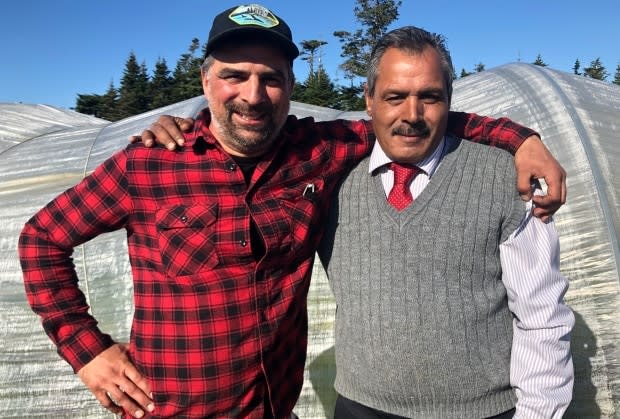
Farming in Portugal Cove-St. Philip's is a lot different than farming in Syria, but a new Canadian agriculture project this year proved to be a big hit — much like the crop of Middle Eastern produce that kept selling out.
Nezar Khalif and Emaad Alktifan got their hands dirty this year at Murray Meadows Farm, which signed on to the agriculture program with the Association for New Canadians (ANC).
Both men and their families fled war-torn Syria as refugees, eventually making their way to Newfoundland and Labrador. They grew up on family farms, but this year was the first season in a long time they had a chance to tend crops.
"Syria has different weather, dry, desert weather. St. John's … big difference, between dry desert weather and the snow and cold — very cold — weather," said Khalif, describing what it was like farming on the Avalon Peninsula for the first time.
"And a short summer, as well. We can't grow all the seeds that I was planting in Syria … because the summer is shorter than Syria, but I have a small land to experiment some seeds for next year."
The farm has never been more productive as it has been this year. - Brian Kowalski
Khalif has been living in Canada since 2015. He grew up farming — a tradition in his family — and learned the ropes from his father.
When Murray Meadows Farm signed on to the ANC project, Khalif ordered some seeds online from the Middle East — specific kinds of cucumbers, fava beans, squash and zucchini unique to the region.
That produce was brought to the farmers' market, where it kept selling out.
"Lots of new Canadians come from the Middle East, and they like this product," said Khalif.
"But this year [we] planted not enough to make all people happy … but a good plan for next year, to plant big. Increase everything."
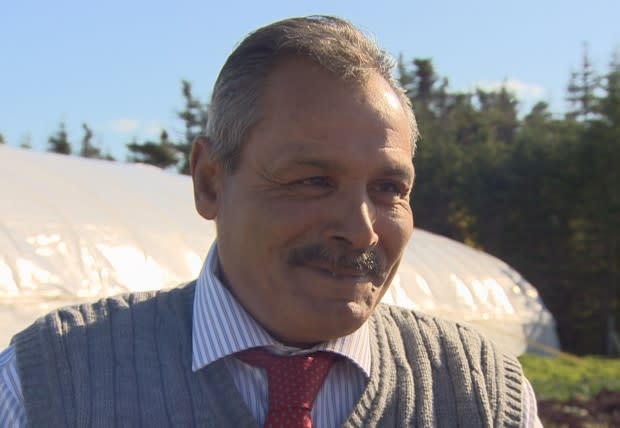
The success of the new crops was a pleasant surprise for farm co-owner Brian Kowalski, who was a bit skeptical when he realized how much of the plot was being used to grow cucumbers.
"We thought, 'Wow what are they gonna do with all these cucumbers? It seems like a lot of cucumbers.' We were making Sprung Greenhouse jokes," he said with a laugh.
"And then we didn't have enough of them — we just couldn't keep up. The fava beans, late in the season, we got the vegetable marrow, the Syrian squash, and we had people lined up at the farmers' market waiting for them. They sold out immediately — that was a big eye opener for us."
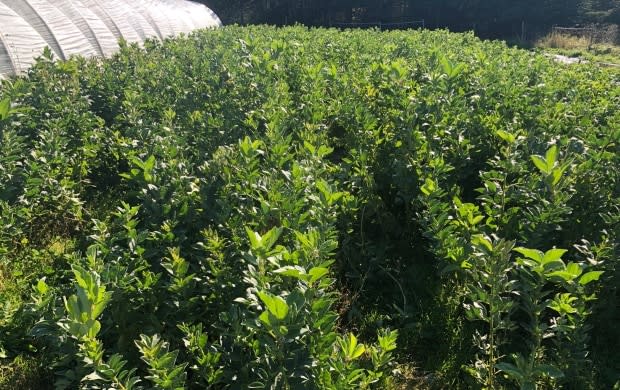
Kowalski, in talks with the ANC, had a plot set aside this spring for Khalif and Alktifan to grow their local produce, but next year, he's hoping they'll expand.
"We're gonna dedicate a great big section of the farm to all those crops next year," Kowalski said.
"It could be so good for the farm, and for the guys."
It's not just about the commercial success of the farm that stands out.
Passing along kindness
For Khalif, it was a way to get his children involved in farming, teaching them the same lessons he learned from his father and grandfather.
When the Golan Heights were occupied by Israel in the 1960s and there was a refugee crisis, Khalif said his father gave those refugees sheep, milk and other crops "because they had nothing."
When his father died in 2011, Khalif said people who he helped were heartbroken at the loss. That highlighted for him just how caring his father had been to those in need.
It's a lesson he's grateful to be able to teach his kids, who all helped out on the farm through the summer.
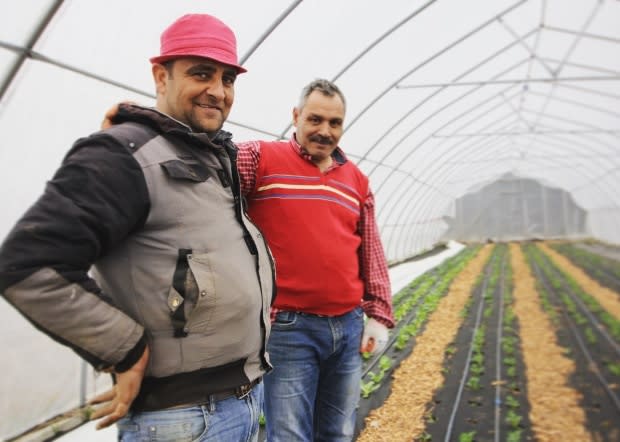
"I just like to tell this story for my children — they will be citizens here — and how to be generous with others, how to volunteer to help people who come from away, like newcomers," Khalif said.
"I would like [them to] keep doing what my father was doing."
A lesson that moves through the generations
As far as Kowalski is concerned, in his experience working with the families, that's a lesson that's definitely making its way down through the generations.
"It's been such an amazing year … speaking of Thanksgiving, I can't be more thankful for the amount of work that the kids did this year," he said.
"I tried, many times, to pay them and I got chased away with a shovel," he added with a laugh. "I almost made one of them angry when I tried too hard."
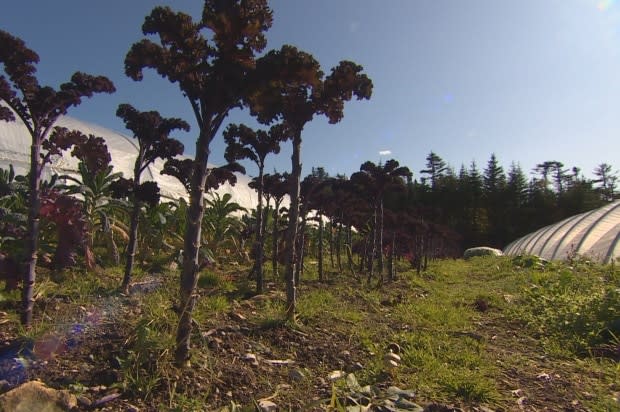
Kowalski said it stood out to him just how much the kids liked working on the farm — something he definitely didn't expect to see.
"I mean, they loved it. I've never seen teenage kids enjoy gardening so much," he said.
"Every time I showed up, they had a smile on their faces, helping alongside me and I'd show them how to do things, they showed me how to do things. It was really great — it was a fun summer."
It was a good match, Kowalski said of the ANC program, adding that it's been successful "beyond our expectations," and he's looking forward to next year's crops.
"The farm has never been more productive as it has been this year," he said.
"I taught myself how to farm when I moved here and did OK, but holy smokes, it's been something else this year."
Read more articles from CBC Newfoundland and Labrador
Get more from the St. John's Morning Show
Listen live to the St. John's Morning Show every weekday from 5:30 a.m. to 9 a.m. You can stream the show live via the CBC Listen app or the web. Visit cbc.ca/stjohns to check out daily highlights, or subscribe wherever you get your podcasts. Click the buttons below for Apple or Android devices!


